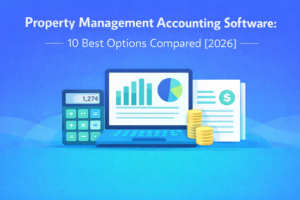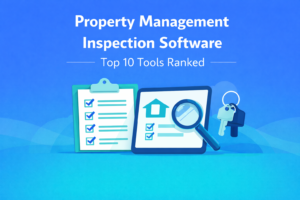
Partnerships are common in businesses, and the property management industry is no different. People often find themselves short on time, capital, or knowledge required for investing.
They form partnerships with someone who can assist them with their experience, money, and time. Partnerships can involve one or more partners who mutually agree on a share using different methods.
In this article, we will provide quality tips on how to form real estate partnerships successfully.
What Is a Real Estate Partnership?
A real estate partnership is when two or more people team up to own and run a property investment. Whether it’s apartments, warehouses, or retail spaces, partners work together to make it happen.
Like any investment, the main goal is to make money. Partners earn income through monthly rent from tenants or businesses using the space. There’s also a chance to make money when the property’s value increases. Selling it later means sharing the profits among all the partners.
Owning property together means discussing a lot of things. Who does what, how much money does each person get, and how does everyone make big decisions as a team?
Partnerships usually fall into two types: active or passive. In active partnerships, everyone helps manage the property.
In passive partnerships, investors provide money but don’t deal with day-to-day stuff. They might hire a property management company to handle things, like one based in Washington, DC.
Types of Real Estate Partnerships
Two main kinds of real estate partnerships exist: Real Estate Limited Partnerships (RELPs) and general partnerships. Understanding the legal, financial, ownership, and management distinctions between them is crucial.
Real Estate Limited Partnerships (RELPs) have two types of partners: general and limited. General partners are in charge of management, while limited partners are investors who don’t play an active role. General partners have unlimited liability, meaning they are fully responsible, while limited partners have limited liability.
On the other hand, general partnerships involve equal ownership among partners. All partners share management duties and decision-making. However, partners in general partnerships have unlimited personal liability for the partnership’s debts and obligations.
How to Form a Real Estate Partnership
Considering teaming up with others for real estate ventures? Great choice! Let’s simplify the process into easy steps so you can confidently leap on the partnership wagon.
1. Find Your Partners
To begin your journey in real estate, start by connecting with individuals who share your aspirations. Look for people whose skills complement yours, such as someone who excels in numbers, another who is well-versed in property management, and even someone with expertise in real estate law.
The more diverse the skills, the stronger your team will be. Building your real estate network is like assembling a superhero team; each member contributes unique and valuable skills that collectively enhance the group’s potential for success.
2. Get a Real Estate Attorney on Your Side
Think of real estate attorneys as your ultimate superheroes regarding legal advice in the real estate realm. A dedicated real estate attorney guides you through the intricate rules of the game and meticulously handles paperwork, ensuring that no crucial detail escapes your attention.
3. Pick a Team Structure
Now, it’s time to carefully consider and choose the official operational structure for your team.
Will you opt for a “general partnership,” where responsibilities and liabilities are shared equally among partners, or perhaps a “limited partnership,” offering a mix of general partners actively managing the business and limited partners with limited involvement and liability?
Take a moment to reflect on how you envision managing the team, defining roles and responsibilities, establishing leadership, and distributing rewards. This decision-making process is akin to setting the groundwork for a strategic board game, where each move counts towards achieving your collective goals.
4. Who Does What?
It’s important to ensure that everyone understands their role within the group. Designate specific responsibilities to each team member – for instance, identify who will be responsible for selecting properties and who will handle financial matters.
Open dialogue is critical – discussing these roles is akin to assigning tasks in a group project, where clarity on individual responsibilities helps streamline collaboration and achieve shared goals effectively.
5. Write It Down in a Partnership Agreement
Now, let’s sit down and put everything on paper, crafting your official partnership rulebook. This comprehensive document will outline ownership, financial contributions, decision-making processes, and more.
Consider it a meticulously crafted contract that ensures alignment and clarity among all involved parties. Your superhero attorney will guide you through creating this crucial document, ensuring a solid foundation for your partnership.
Tips for Successful Real Estate Partnerships

Creating successful real estate partnerships requires clear communication and shared goals among partners.
It is crucial to establish your investment goals by considering the types of properties you are targeting, the markets you are interested in, your expected returns, and the timelines you are working with.
Trust is a critical element of any partnership, so it is essential to maintain open and honest communication. Regularly sharing updates, information, and feedback can help keep everything running smoothly.
Maximize each partner’s strengths, skills, and resources to ensure your partnership works well. This way, you can divide tasks and responsibilities strategically.
Disagreements may arise in real estate partnerships, and it is crucial to handle conflicts professionally. Including dispute resolution methods such as mediation in the contract can help find fair solutions.
Pros of Real Estate Partnerships
Shared Responsibilities: Working with partners means dividing tasks, making property management more efficient, and lightening the workload for everyone involved.
Access to More Capital: Pooling resources with partners provides access to larger amounts of capital. This enables you to invest in multiple or pricier properties that might be challenging to tackle solo.
Risk Mitigation: Sharing risks among partners helps minimize financial exposure. If one investment doesn’t perform well, having multiple contributors can soften the impact.
Diversification of Skills: Partnerships bring together individuals with diverse skills, knowledge, and expertise. Forming a team increases the likelihood of success by combining different strengths.
Cons of Real Estate Partnerships
Potential for Conflict: Varied opinions, decision-making styles, or goals among partners can lead to conflicts that may impact the partnership.
Profit Sharing: Partners have to divvy profits, potentially resulting in a smaller individual share than solo investing.
Shared Liabilities: Partnerships come with shared liabilities. Each partner may be accountable for the actions, debts, or obligations of the partnership or other partners, elevating personal risk.
Less Control: Partnering means compromising on decisions. While it brings diverse perspectives, it also means giving up some of the control you’d have if investing independently.
Conclusion
Teaming up for real estate adventures can be an exciting and achievable idea! Find some incredible partners and get a legal superhero on board. Figure out how you want to work together, ensure everyone knows their role, put everything in writing, and voila! You’re all set to take on the real estate world!
Partnerships are all about combining strengths, sharing risks, and achieving more together. Of course, there may be challenges along the way, but with good communication and clear goals, you can turn those challenges into impressive victories.
Table of Contents
Stay Updated
Subscribe to get the latest news, industry trends, blog posts, and updates...




